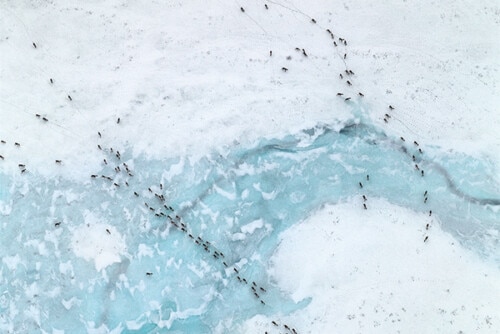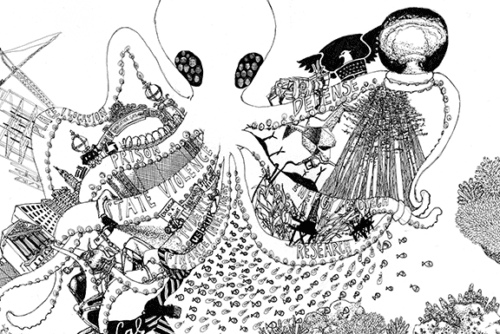Some Conclusions
As this is a preliminary discussion of a great deal of indigenous elder cultural environmental knowledge on the North Slope, there is much that remains under-examined here. Our main goals have been to present local testimony about the current realities in northern Alaska and to articulate our interdisciplinary methods. The environmental realities in far Northern regions are alarming, but regional politics and ecological urgencies create important and interesting opportunities for collaboration and the sharing of information across epistemological and cultural differences.
Iñupiaq perspectives and subsistence practices are powerful lenses through which to consider and evaluate the impacts of climate change, and to identify local strengths and resources for dealing with present and future challenges. In addition to vitally important information about environmental changes, our landscape-focused interviews with Iñupiaq elders include a wealth of information about contemporary land-based practices and cultural values. Along with the effects of anthropogenic global climate change (not unrelated to petroleum), the residents of the North Slope of Alaska are concerned about the immediate impacts of local petroleum development on their environment. Yet concerning environmental change, subsistence practices, and even gendered social roles, the Iñupiat appear to maintain a strong commitment to core values while enacting a high degree of flexibility and adaptability. Those are likely to be tremendous virtues as Arctic communities face the great unknowns of the future.
Our project aims to address common needs and a common sense of urgency, due to the rapidity of climate change in the North and the threat of cultural loss as highly respected elders grow older and face declining health. Sharing common concerns does not mean that everyone involved embraces identical environmental values, or that we see the North Slope environment or human community in the same way. Rather, we found that a shared sense of hoping for and working toward the well-being of the communities, animals, and ecosystems of the region has provided the necessary common ground for the knowledge-generating relationship we have worked to foster. While it would be a mistake to try to codify that sense or feeling into a method, we believe it would be difficult to complete mutually beneficial research connecting scientific and local knowledge if some sort of caring connection and/or high levels of respect for local autonomy were not somehow motivating the work. It is not always easy for researchers to know whether our contributions are beneficial to the communities with whom and for whom we work, but perhaps right now it is particularly important to try.



